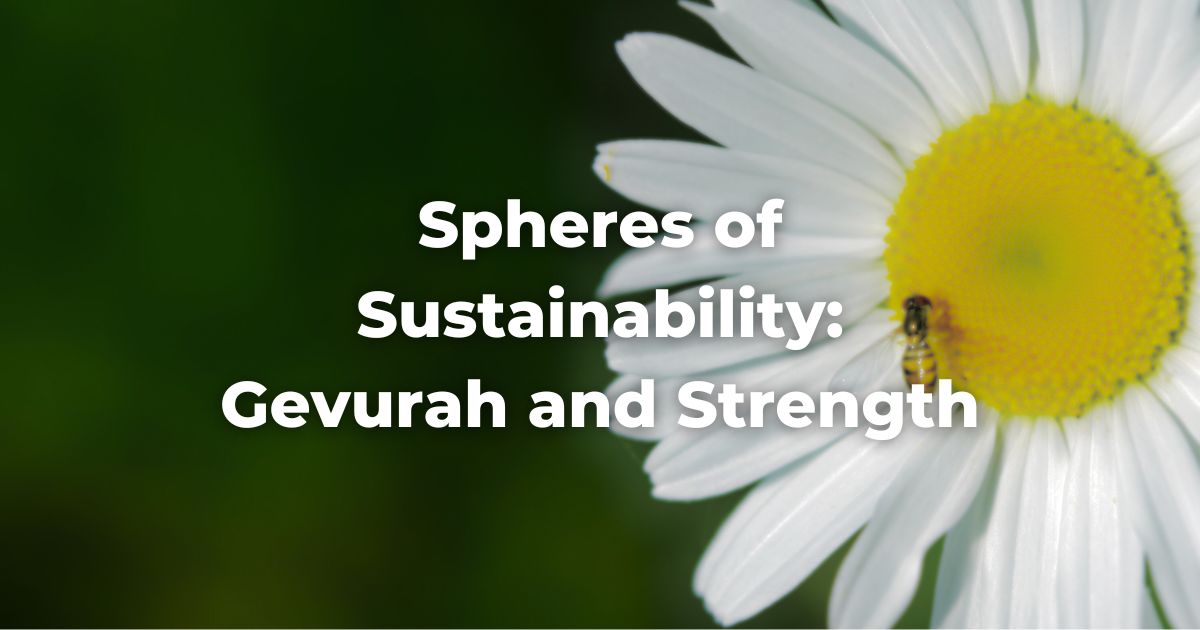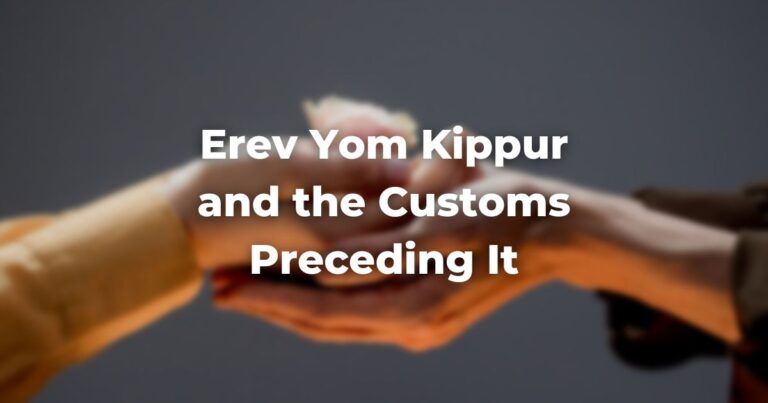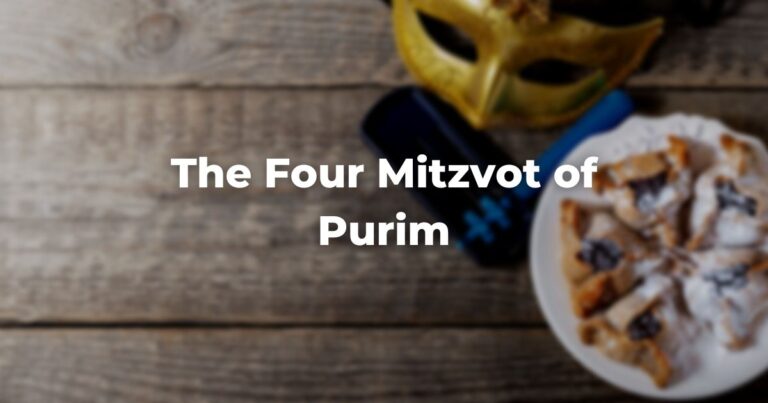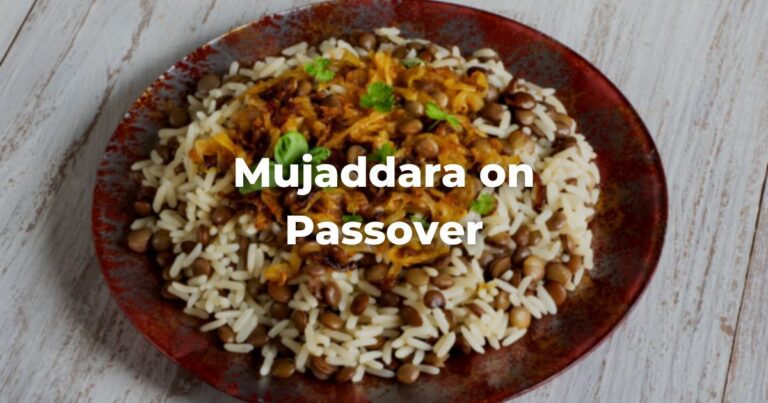Each week during the period of the Omer, the seven weeks between Passover and Shavuot, we can deepen our collective actions for caring for the earth. These teachings are disciplines that speak to the head, heart, and hand, corresponding to the three pillars on which the world stands: TorahRefers to the first five books of the Hebrew Bible, the Tanakh, also called the Five Books of Moses, Pentateuch or the Hebrew equivalent, Humash. This is also called the Written Torah. The term may also refer to teachings that expound on Jewish tradition. Read more (Learning), AvodahOriginally understood as Temple service, but expanded to mean any service to God.
Related to: gemilut hasadim. See Pirkei Avot 1:2 Read more (service), and Gemilut HasadimPerforming acts of kindness (hesed).
Often drawn from Pirkei Avot 1:2, “the world stands upon three things: the Torah, the Temple service (avodah), and the practice of acts of piety (gemilut hasadim).” Read more (lovingkindness) (Pirkei Avot 1:2). Take these words, share them, teach them, adapt them, pursue them. Check out the full series here.
Gevurah (strength) permeates this second week of Sefirat Ha’Omer. It has earned a reputation for highlighting a somewhat somber corner of our psyches.
Kabbalists have assigned to it the attribute of din (דִּין, “Judgement”), and given it additional names such as Nachash (נָחָשׁ, “snake”), Yir’ah (יִרְאָה, “awe/fear”), and Devorah (דְּבוֹרָה, “bee”).
Yet at root, Gevurah means strength, persistence, and the energy to champion something; an attribute we all need as we face the challenges of our lives. And in the visual depiction of the sefirot, Gevurah never stands alone. It is paired with and is corollary to God’s ever-flowing ChesedThere is no perfect translation, but is generally defined as “loving-kindness.” When we act with Hesed, we are doing Gemilut Hasadim. Also spelled: chesed Read more. God’s capacities for love and fear, goodness and judgment, balance each other out, meeting in Tif’eret (beauty).
(See more: On Tif’eret)
Invoking Gevurah beckons us not to give in to despair, but to reckon with our anxieties, knowing that our fears live in balance with the other Divine attributes.
Just as our fight-or-flight response helps us transition from danger to survival, so too acknowledging the harder moments of our lives enables us to persist and discover new pathways ahead of us.
The best utility of Gevurah is not to dwell inside it but to affirm our worries and to strategize how we take our next steps in life, informed by Gevurah’s wise caution.
Head
The medieval piyyut (‘prayer-poem’) “Adon Olam” (“אֲדוֹן עוֹלָם,” “Master of the Universe”) attests to God’s everlasting presence in the universe:
אֲדוֹן עוֹלָם אֲשֶׁר מָלַךְ בְּטֶרֶם כָּל יְצִיר נִבְרָא…
וְאַחֲרֵי כִּכְלוֹת הַכֹּל לְבַדּוֹ יִמְלֹךְ נוֹרָא…
Adon olam asher malakh b’terem kol y’tzir nivra…
V’aharei ki-kh’lot ha-kol l’vado yimlokh nora…Before creation shaped the world, eternally God reigned alone…
but only with creation done could God as Sovereign be known. …
The Eastern European Rabbi Yisra’el Me’ir Kagan HaCohen (1838–1933), commonly known as the Chafetz Chayyim (חָפֵץ חַיִּים, “Desiring Life”), understood that “Adon Olam” highlighted the precariousness of nature as we know it. In the introduction to his book Torah Or (תּוֹרָה אוֹר, “The Light Will Instruct”), Rabbi Kagan warned:
וְהַכֹּל צְרִיכִים לוֹ וְהוּא אֵינוֹ צָרִיךְ לָהֶם כְּלוּם וּבִרְצוֹנוֹ הוּא יָכוֹל בִּכְמוֹ רֶגַע לִבְנוֹת שָׁמַיִם חֲדָשָׁה וְאֶרֶץ חֲדָשָׁה
Though all [things that exist] need God, God does not need them at all. It is within God’s willpower to build instantaneously a new heaven and a new earth.
Rabbi Kagan’s faith that God would not destroy our world could only be grounded in the notion that we bring something vital to God’s creation. Through fulfilling mitzvot, Jews keep up their end in the ecosystem of God’s universe—and God reserves space for us.
Heart
Jewish mystics living in the German Rhineland in the 12th and 13th centuries formed a pietistic sect, Chasidei Ashkenaz (חֲסִידֵי אַשְׁכְּנַז). These medieval sages invented many customs and composed many prayers that now feel integral to Jewish tradition.
One such practice they innovated (but has been largely discontinued) is the daily recitation of Shir HaYichud (שִׁיר הַיִּחוּד, “The Song of Unification”), a poetic reflection on the order of the cosmos. The author of the part of Shir HaYichud assigned to be recited on Sundays laments the inaccessibility of resources once needed to continue the Temple’s long-gone sacrificial cult.
Yet he delights in the existence of a God who adapted to a changing world and welcomed prayer and justice in place of sacrifice. Though few English translations exist for Sunday’s Shir HaYhichud poem, the Hebrew text may be found here.
Hand
The attribute (middah—מִדָּה) of Gevurah heightens our awareness of the world’s (and our own) imperfections. Gevurah is not an attribute to embody forever but to pass through on a path between Chesed and Tif’eret.
This week, find an environmental imperfection near you and work to correct it.
Find a public space with litter and take a few minutes to dispose of it properly. (Wear gloves!) Find hungry humans who can benefit from the unconsumed food from your events and share it with them. (Some cities have organizations that will pick up your excess food or a list of shelters and kitchens you can take the food to.)
Pay attention to the ecological damage that surrounds you. Know that while you cannot fix it all, you can fix certain small problems, and together we can fix a broken system.
Author
-

Rabbi Jonah Rank is the President and Rosh Yeshivah of Hebrew Seminary: A Rabbinical School for Deaf & Hearing.
View all posts






